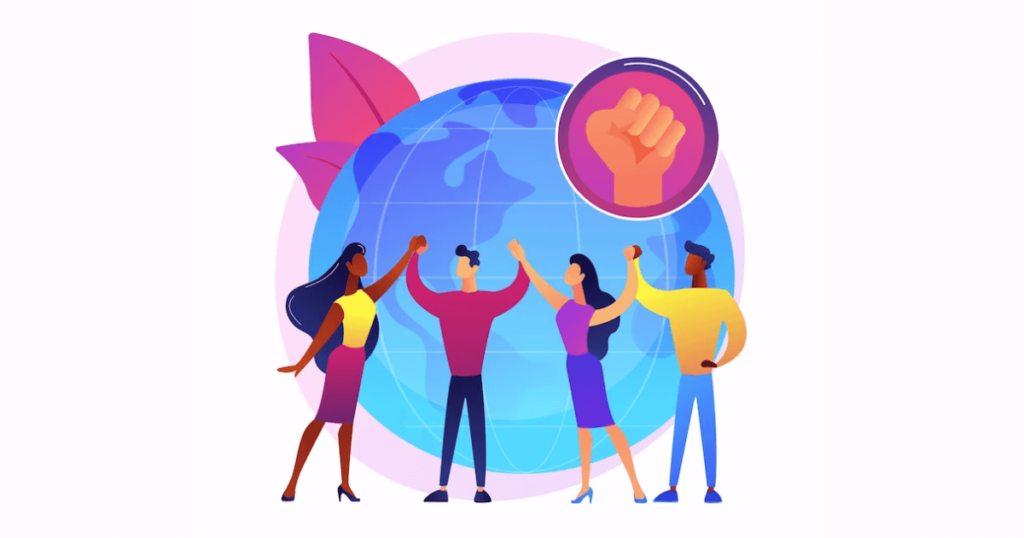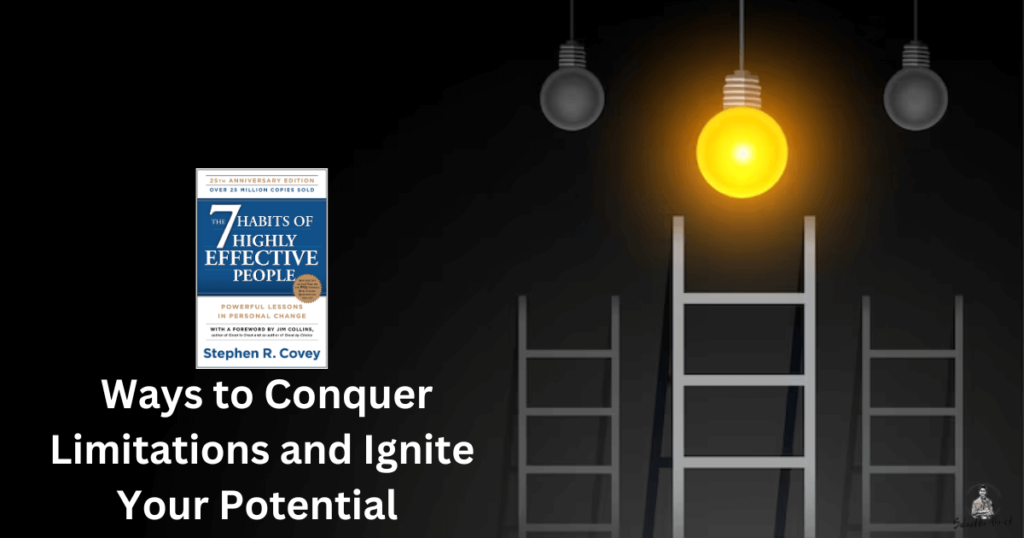In a world where limitations and challenges seem ever-present, it is crucial to recognize that cursing our fate is not a solution. The effort, on the other hand, holds the key to unlocking our true potential and creating positive change.
In this blog, we will delve deeper into the transformative power of effort and its impact on various aspects of our lives.
From personal growth and family dynamics to our connection with nature and all living beings, we will explore how our individual efforts can create a ripple effect, empowering not only ourselves but also our families, communities, and the world at large.
Overcoming Personal Limitations: Effort as Self-Empowerment

The journey of personal growth begins with self-awareness and a commitment to overcome our limitations. By embracing effort, we empower ourselves to push beyond perceived boundaries and unlock our untapped potential.
Stephen R. Covey‘s timeless book, “The 7 Habits of Highly Effective People,” emphasizes the significance of self-awareness and proactive efforts as key drivers of personal success.
When we invest effort into personal development, we not only uplift ourselves but also inspire those around us, including our family and loved ones.
Real-Life Transformation: Sarah’s Journey of Effort and Empowerment
Sarah, a single mother struggling to make ends meet, found herself trapped by financial limitations. However, instead of succumbing to despair, she decided to take control of her destiny through dedicated effort.
Sarah enrolled in evening classes upskilled herself, and secured a better-paying job. Her transformation not only empowered her to provide a better life for herself and her children but also inspired her family and friends to embrace effort and create positive change in their own lives.
Strengthening Family Bonds Through Effort

Effort plays a vital role in strengthening family dynamics and fostering a supportive environment. When each family member commits to personal growth and puts in the effort to overcome their limitations, it creates a positive ripple effect within the family unit.
The teachings of Covey, in “The 7 Habits of Highly Effective People,” highlight the importance of building strong relationships based on trust, understanding, and collective effort. By supporting and encouraging one another’s growth, families can create a nurturing space for everyone to thrive.
Real-Life Example: The Smiths’ Family Project
The Smiths, a close-knit family, recognized the need for a collective effort to make a positive impact. They initiated a community project to clean up a local park and promote environmental awareness.
Each family member contributed their unique skills and effort, teaching the younger generation the value of taking responsibility for the world around them.
This shared experience not only strengthened their bond as a family but also inspired neighbors and friends to join their cause, fostering a sense of community and environmental stewardship.
Nurturing Nature: Effort as a Catalyst for Environmental Consciousness

The effort extends beyond personal and familial spheres to include our connection with nature. Recognizing the importance of preserving our planet, Covey’s principles encourage responsible stewardship of the environment.
By making conscious efforts to reduce waste, conserve resources, and support eco-friendly practices, we contribute to the well-being of future generations and the sustainability of our planet.
Small efforts, such as recycling, using renewable energy, and planting trees, collectively make a significant impact.
Real-Life Example: Emma’s Journey to a Sustainable Lifestyle
Emma, an environmental enthusiast, made a conscious effort to adopt a more sustainable lifestyle. She reduced her carbon footprint by using public transportation, practicing mindful consumption, and educating others about the importance of environmental conservation.
Emma’s efforts not only made a tangible difference in her own life but also inspired her friends, family, and the wider community to follow suit, creating a ripple effect of positive change for the environment.
The Ripple Effect: Effort and its Impact on Humanity

When we extend our efforts beyond ourselves, our families, and nature, we contribute to the betterment of humanity as a whole.
Acts of kindness, volunteer work, and efforts to address social issues can make a significant difference in the lives of those less fortunate.
By embodying Covey’s principle of thinking win-win, we foster compassion, empathy, and collective effort to uplift and empower marginalized communities, promoting equality and social progress.
Real-Life Example: John’s Humanitarian Efforts
John, driven by a desire to make a meaningful impact, dedicated his efforts to improving the lives of homeless individuals in his community.
He initiated a shelter project, mobilizing volunteers and resources to provide food, clothing, and temporary housing.
Through his selfless efforts, John not only brought hope and support to the homeless but also inspired others to join him in his mission, amplifying the impact and creating a ripple effect of compassion and change.
Frequently Asked Questions (FAQ)
Why is effort emphasized as the key to overcoming limitations?
How can self-awareness contribute to overcoming limitations?
Can effort positively impact not only ourselves but also our families and communities?
How can effort contribute to environmental conservation?
Can individual efforts really make a difference in society as a whole?
Reference: The insights and principles shared in Stephen R. Covey’s book, “The 7 Habits of Highly Effective People,” further support the importance of effort, self-awareness, and proactive actions in overcoming limitations and achieving personal and collective growth.
Read more:
Breaking the Silence and Self-Expression: Embracing Visibility Through “Show Your Work”
Transforming Failures into Success: Unveiling the Power of Persistence and Learning
Conclusion
The effort has the power to transform not only our own lives but also the lives of our family, the well-being of nature, and the welfare of humanity as a whole.
By recognizing our limitations, embracing self-awareness, and committing to continuous effort, we create a ripple effect of empowerment, inspiration, and positive change.
Let us remember that our individual efforts, no matter how small, hold the potential to shape a better future for ourselves, our loved ones, and the world we inhabit.

